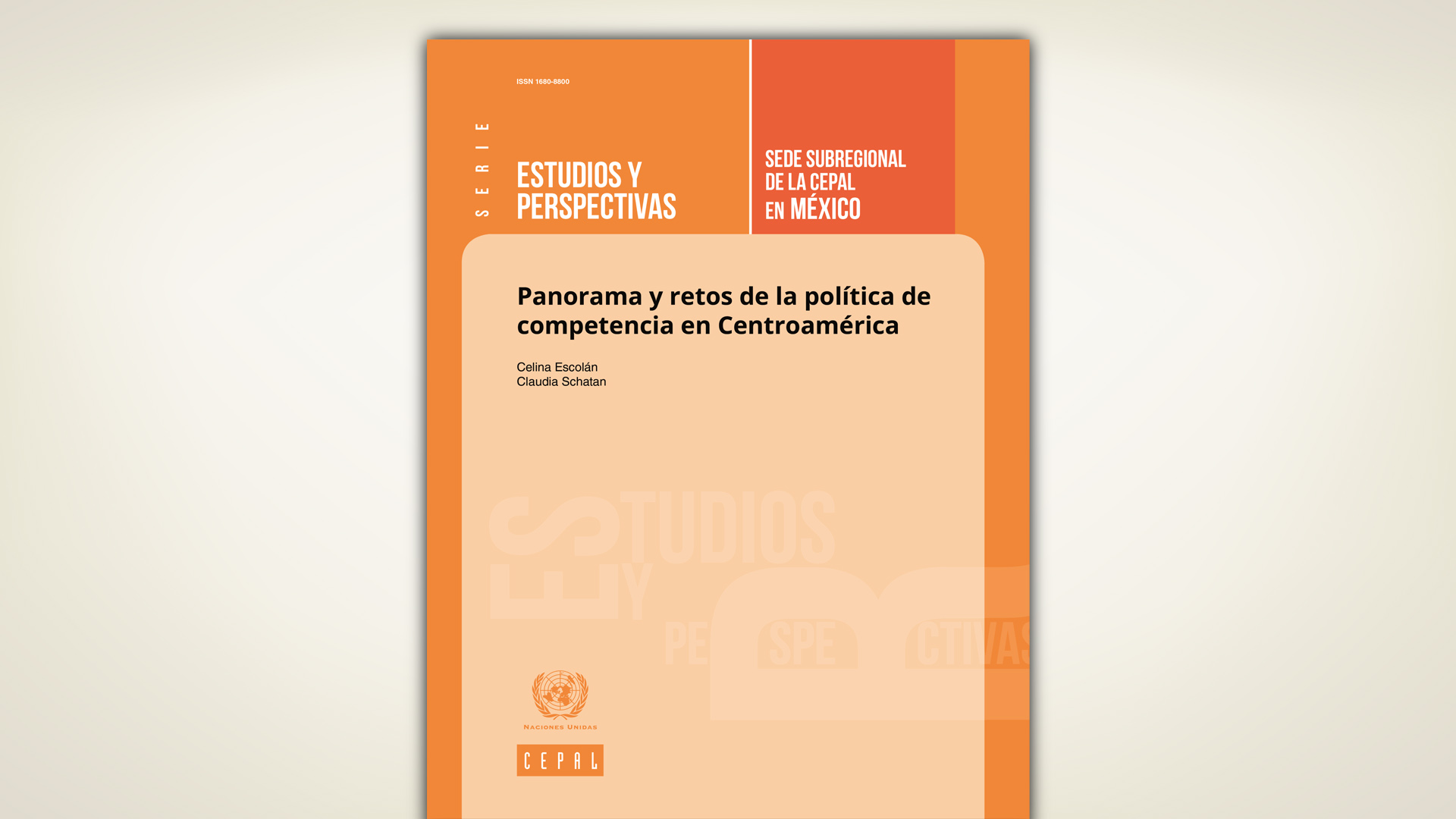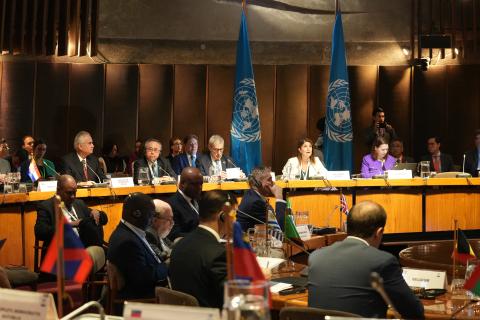Press Release
The coordination of Central American competition policy would contribute to improving market functioning in the subregion and would reinforce competition in each country, according to the study Overview and challenges of competition policy in Central America (Spanish only).
The publication by the Subregional Headquarters of the Economic Commission for Latin America and the Caribbean (ECLAC) in Mexico analyzes how the requirements of the Association Agreement between Central America and the European Union – which establishes that all countries must have an effective competition policy – have contributed to legal reforms in countries of the subregion.
Costa Rica, El Salvador, Honduras, Nicaragua and Panama already have competition laws and have worked on harmonizing their legislation to confront regional and global challenges in this area. Guatemala is in the process of formulating and discussing its competition law.
The study recognizes the challenges that countries have faced to promote a culture of competition due to legal vacuums and the limited room for maneuver that competition agencies have.
The legislative amendments already made or proposed are oriented toward giving competition agencies more instruments to carry out their case investigations; reducing exceptions in the application of the law; expanding their powers to regulate concentration of ownership; providing them with greater resources to operate; introducing intermediate processes for resolving cases of anti-competitive practices, in which the parties can reach an agreement before the investigation ends; and, finally, creating the figure of clemency or compensated whistleblowing, which could help in detecting cartel practices more easily.
However, there are restrictions that have not been remediated, such as the limited promotion of competition; the lack of resources for investigating all relevant cases; the lack of institutional and economic independence of the majority of agencies; and the marginal role of competition policy in comparison with other economic policies: financial, macroeconomic and fiscal, among others.
Another challenge lies in the fact that countries’ competition policies, having been inspired primarily by models in developed countries, are not easily adapted to the characteristics of small economies.
A special section in the document is dedicated to Guatemala. It proposes the publication and dissemination of a competition policy – before approving a law with basic elements – that creates an authority and provides it with an adequate budget. It also recommends looking for synergies between competition policy and other public policies, since in the agenda of competitiveness there are measures that could contradict a future law and/or competition agency, by giving competition-related powers to sectoral regulators (for example, to the body that regulates air transport).
Guatemala has national and international commitments that require the promulgation of a competition law but, unfortunately, diverse factors have hindered the approval of a law and the creation of a competition agency in that country, including resistance by some economic agents who fear losing privileges and a lack of knowledge regarding competition policy and law, which impedes debate and social support for these initiatives.
Considering the particularities of the Guatemalan case and the efforts that the rest of the Central American countries have made to harmonize their laws, the study recommends improving the coordination of national competition policies, creating a regional cooperation agreement, and assessing the opportunity to create an authority that addresses the subregion’s challenges.
“Even if it were not possible to approve an authority with supranational powers, it would be of great help to at least have an authority with sufficient power to collaborate on sectoral and case investigations, as well as to mutually reinforce the administrative and judicial processes, giving counsel to national authorities,” the text concludes.

